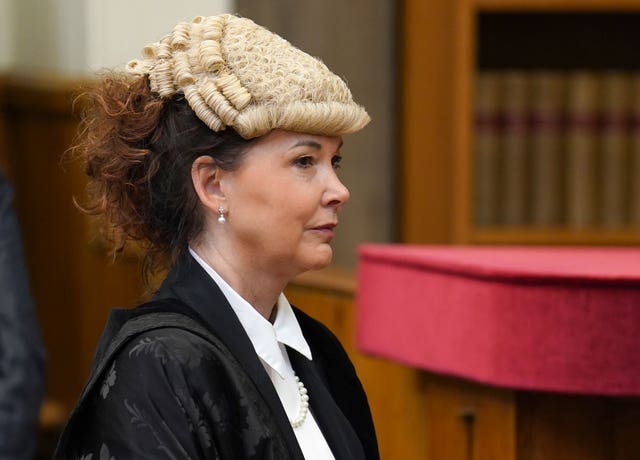
High Court judges have agreed with the Lord Advocate who has argued for changes to corroboration laws which could affect rape cases.
The majority of a historic nine judge bench have agreed a “de recenti” statement made by a victim soon after an incident can be corroborative on its own, in the absence of distress.
They also agreed it is capable of proving the crime happened and the identity of the perpetrator.
Lord Advocate Dorothy Bain had asked the judges to consider whether statements made soon after an incident can corroborate a complainer’s evidence in the absence of distress and if so, at what point in time or in which circumstances that stops being the case.
She had asked them to consider overturning a rule dating back to the trial of Henry Morton for indecent assault in 1937, which holds that statements made by alleged victims shortly after an alleged offence has been committed can only have a bearing on their consistency and credibility.
Such statements cannot, under the rule, have a bearing on whether the offence actually happened or who committed it, meaning these details need to be corroborated with separate evidence.
The matter was brought in the wake of two sexual offences trials from last year that resulted in majority not proven verdicts.

In a written opinion published on Wednesday, Lord Justice General Lord Carloway said the decision in Morton v HM Advocate was correct and should not be overruled “but the dicta on the corroborative effect of a de recenti statement is disapproved”.
He said it is not now disputed that a de recenti statement is corroborative on its own – that is, in the absence of distress – and: “If a de recenti statement is corroborative, it is capable of proving the occurrence of the crime and the identity of the perpetrator.
“A statement ceases to be de recenti when it ceases to be ‘recent’ following upon the commission of the crime, or is not provided to the first natural confidante as described in this opinion.”
The case, heard at the Court of Session in Edinburgh in June, followed on from the Lord Advocate’s Reference No.1 of 2023, which resulted in the court ruling that evidence of a complainer being distressed shortly after an alleged offence is capable of corroborating their account of what happened.
Lady Dorrian, the Lord Justice Clerk, said she was in “complete agreement” with Lord Carloway.
She wrote: “It would be utterly illogical to treat some of what a complainer said as corroborative (as to the commission of the crime) but some as lacking that quality (anything said in respect of the identity of the perpetrator).
“If the statement has the necessary quality to be accepted as a de recenti statement, as opposed to a subsequent narrative account of facts remote from the events and after time for reflection, then it has corroborative value, in its entirety.”
Six other judges agreed with Lord Carloway, however Lady Paton raised concerns around the issue of identification.
She wrote: “Corroboration of identification evidence in the sense of evidence from other independent sources – extrinsic to the complainer – provides a salutary safeguard.”


Why are you making commenting on The National only available to subscribers?
We know there are thousands of National readers who want to debate, argue and go back and forth in the comments section of our stories. We’ve got the most informed readers in Scotland, asking each other the big questions about the future of our country.
Unfortunately, though, these important debates are being spoiled by a vocal minority of trolls who aren’t really interested in the issues, try to derail the conversations, register under fake names, and post vile abuse.
So that’s why we’ve decided to make the ability to comment only available to our paying subscribers. That way, all the trolls who post abuse on our website will have to pay if they want to join the debate – and risk a permanent ban from the account that they subscribe with.
The conversation will go back to what it should be about – people who care passionately about the issues, but disagree constructively on what we should do about them. Let’s get that debate started!
Callum Baird, Editor of The National
Comments: Our rules
We want our comments to be a lively and valuable part of our community - a place where readers can debate and engage with the most important local issues. The ability to comment on our stories is a privilege, not a right, however, and that privilege may be withdrawn if it is abused or misused.
Please report any comments that break our rules.
Read the rules hereComments are closed on this article